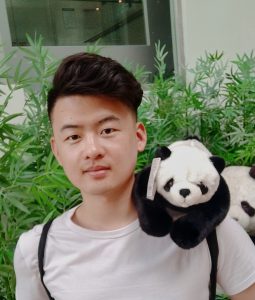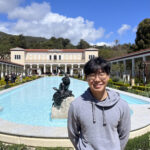Faculty

Hongjing Lu
hongjing@ucla.edu
Professor, Departments of Psychology & Statistics
The University of California, Los Angeles
7534 Pritzker Hall, Office phone #: 310-206-2587
Hongjing Lu’s CV
Postdocs

I study what we see. Beyond seeing the surface of the world (such as color, shape, and motion), I explore the possibilities that visual processes extract attributes that underlie the physical and social mechanics of the world. I ask questions like: Why do we like what we like? How are our minds “visible” to others? How can we see a towel as twisted rather than a fabric woven in an intertwining shape? In my free time, I am a proud mom of nearly a hundred guppy and platy fish (and a few snails).

I am broadly interested in the question of how the brain extracts structured, abstract representations from noisy, high-dimensional perceptual inputs, and uses these representations to achieve intelligent behavior. To better understand these processes, my work exploits a bidirectional interaction between cognitive science and artificial intelligence, with an emphasis on the visual domain. This involves two major components. First, I use recently developed neural network modeling techniques to build models of higher-order cognitive processes (e.g., metacognition, analogical reasoning) that are grounded in realistic perceptual inputs (images). Second, I take inspiration from cognitive science to design novel inductive biases aimed at imbuing deep learning algorithms with a more human-like capacity for reasoning and abstraction.
Graduate Students

I received my B.S. in Computer Science and Mathematics at the Hong Kong University of Science and Technology. I am broadly interested in Computer Vision and Computational Cognition. My previous work involves general computer vision tasks such as object detection, semantic segmentation, and domain adaptation. I am now interested in the development of reasoning ability in machine learning models. I am working on various projects examining how relational knowledge are represented in humans, and how humans and machines exploit these relational knowledge to enhance their ability in generalization and abstraction.

I study high-level cognition using computational and experimental approaches. I am particularly interested in causal reasoning, analogical reasoning, and decision-making. My work examines how these processes interact in different contexts of making decisions, and what mental representations people acquire to enable smart reasoning and decision-making.

I received my B.S. in Statistics and Cognitive Science with a Specialization in Computing at UCLA (a double Bruin :)). My previous work focused on cooperative communication and causal perception. I am particularly interesting in how we can easily reason about other people’s minds and about the physical world, sometimes even unconsciously. My general research interests focus on using computational methods to study social perception and cognition. I am also interested in exploring other topics under cognition such as memory, emotions, and creativity.

I attended Williams College for my B.A. and Oxford University for a year abroad, where I studied cognitive science, philosophy, and statistics. My interests vary widely, from induction, relational reasoning, and re-representation, to designing intelligent and representationally interpretable models. My goal is to understand the computational mechanisms of intelligence, for which I often find myself returning to foundational ideas like Marr’s levels of analysis, the nature of mental representations, and emergence in distributed systems. Currently, I pursue research questions in the context of the deep learning paradigm, which has become a useful locus to inquire about Marr, representations, emergence, etc. Some questions include: How do we re-represent the roles of entities as contexts or task-demands change? How does a concept keep hold of such multifaceted roles? And, for that matter, what exactly is abstraction and conceptual knowledge?

Andrea Kang (Ph.D. student, Statistics)
My B.S. in Carnegie Mellon University was in Cognitive Science, while my M.S. in UC San Diego was in Machine Learning and Data Science. With both cognitive and data science in mind, I am interested in understanding the extent to which machine learning can handle cognitive processes and assist humans through ethical means. My research interests regarding this topic can expand towards simulation as well as Augmented/Virtual Reality.
Alumni
| Nick Ichien | Postdoc, University of Pennsylvania |
| Bryor Snefijella |
Assistant Professor, Arizona State University |
| Akila Kadambi | Postdoc, UCLA |
| Yujia Peng | Assistant Professor, Peking University, China <webpage> |
| Gennady Erlikhman | Research scientist, Apple <webpage> |
| James Kubricht | Research scientist, GE research <webpage> |
| Joseph Burling | Postdoc, Ohio State University <webpage> |
| Junzhu Su | Research scientist, Oracle <webpage> |
| Steven Thurman |
Senior research scientist, ARMY Research Lab <webpage> |
| Jeroen J. A. van Boxtel |
Associate Professor, Monash University, Australia <webpage> |
| Alan Lee |
Associate Professor, Lingnan University, Hong Kong <webpage> |
| Randall R. Rojas | Adjunct Associate Professor, Department of Economics, UCLA <webpage> |